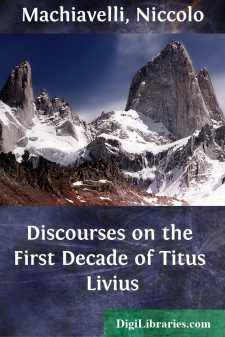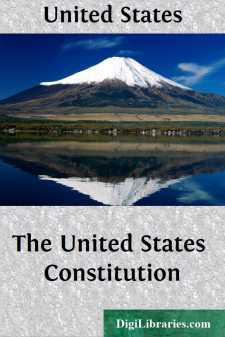Categories
- Antiques & Collectibles 13
- Architecture 36
- Art 48
- Bibles 22
- Biography & Autobiography 813
- Body, Mind & Spirit 142
- Business & Economics 28
- Children's Books 17
- Children's Fiction 14
- Computers 4
- Cooking 94
- Crafts & Hobbies 4
- Drama 346
- Education 46
- Family & Relationships 57
- Fiction 11829
- Games 19
- Gardening 17
- Health & Fitness 34
- History 1377
- House & Home 1
- Humor 147
- Juvenile Fiction 1873
- Juvenile Nonfiction 202
- Language Arts & Disciplines 88
- Law 16
- Literary Collections 686
- Literary Criticism 179
- Mathematics 13
- Medical 41
- Music 40
- Nature 179
- Non-Classifiable 1768
- Performing Arts 7
- Periodicals 1453
- Philosophy 64
- Photography 2
- Poetry 896
- Political Science 203
- Psychology 42
- Reference 154
- Religion 513
- Science 126
- Self-Help 84
- Social Science 81
- Sports & Recreation 34
- Study Aids 3
- Technology & Engineering 59
- Transportation 23
- Travel 463
- True Crime 29
Discourses on the First Decade of Titus Livius
Description:
Excerpt
CHAPTER I.—Of the Beginnings of Cities in general, and in particular of that of Rome.
No one who reads how the city of Rome had its beginning, who were its founders, and what its ordinances and laws, will marvel that so much excellence was maintained in it through many ages, or that it grew afterwards to be so great an Empire.
And, first, as touching its origin, I say, that all cities have been founded either by the people of the country in which they stand, or by strangers. Cities have their origins in the former of these two ways when the inhabitants of a country find that they cannot live securely if they live dispersed in many and small societies, each of them unable, whether from its situation or its slender numbers, to stand alone against the attacks of its enemies; on whose approach there is no time left to unite for defence without abandoning many strongholds, and thus becoming an easy prey to the invader. To escape which dangers, whether of their own motion or at the instance of some of greater authority among them, they restrict themselves to dwell together in certain places, which they think will be more convenient to live in and easier to defend.
Among many cities taking their origin in this way were Athens and Venice; the former of which, for reasons like those just now mentioned, was built by a scattered population under the direction of Theseus. To escape the wars which, on the decay of the Roman Empire daily renewed in Italy by the arrival of fresh hordes of Barbarians, numerous refugees, sheltering in certain little islands in a corner of the Adriatic Sea, gave beginning to Venice; where, without any recognized leader to direct them, they agreed to live together under such laws as they thought best suited to maintain them. And by reason of the prolonged tranquility which their position secured, they being protected by the narrow sea and by the circumstance that the tribes who then harassed Italy had no ships wherewith to molest them, they were able from very small beginnings to attain to that greatness they now enjoy.
In the second case, namely of a city being founded by strangers, the settlers are either wholly independent, or they are controlled by others, as where colonies are sent forth either by a prince or by a republic, to relieve their countries of an excessive population, or to defend newly acquired territories which it is sought to secure at small cost. Of this sort many cities were settled by the Romans, and in all parts of their dominions. It may also happen that such cities are founded by a prince merely to add to his renown, without any intention on his part to dwell there, as Alexandria was built by Alexander the Great. Cities like these, not having had their beginning in freedom, seldom make such progress as to rank among the chief towns of kingdoms.
The city of Florence belongs to that class of towns which has not been independent from the first; for whether we ascribe its origin to the soldiers of Sylla, or, as some have conjectured, to the mountaineers of Fiesole (who, emboldened by the long peace which prevailed throughout the world during the reign of Octavianus, came down to occupy the plain on the banks of the Arno), in either case, it was founded under the auspices of Rome nor could, at first, make other progress than was permitted by the grace of the sovereign State....









